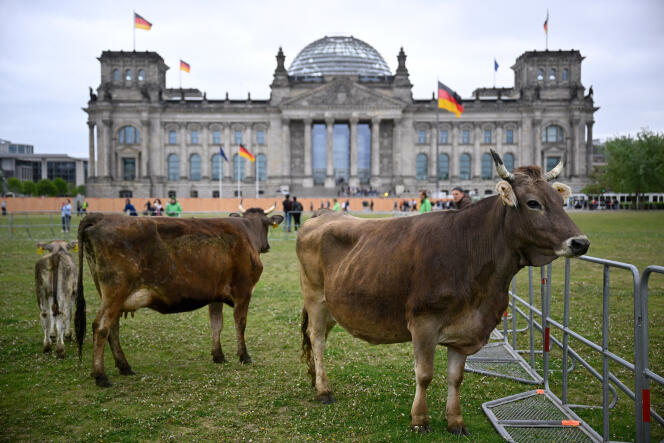In Germany, organics declined for the first time in history in 2022


Elke Reiser and her husband, who run an organic farm in Baden-Württemberg, decided in 2022 to sell the organic direct sales shop they had been running for ten years. “Sales are down 20% to 30%. It was a big drop, people didn’t come to the store as often anymore. At the same time, we have been hit by increases in costs, energy, but also staff, as wages have increased. It was a difficult year, but everything will stabilize.”– says M.I Raiser on the phone. The family refocused on their traditional agricultural production and breakfast business.
In Germany, 2022 saw the end of a trend that seemed unchanged for twenty years: ever-increasing sales of organic food, with annual growth often in double digits. Last year, for the first time in history, organic branch turnover fell: – 3.5% compared to 2021, to 15.3 billion euros.
We are talking about high inflation, which has particularly affected food and forced Germans to reconsider their consumption choices. The mood among the participants of the exhibition darkened significantly: they were not always able to transfer the entire increase in production costs to the selling prices, some preferred to keep the products.
The picture is less dark than it appears
In distribution, the shock is mainly to specialty brands and direct sales, down 18%, according to a report published in February by organic food producers’ association BÖLW. 100% organic points of sale were particularly affected.
Several regional chains such as Bio-Supermarkt, Basic or Reformhaus Bacher went bankrupt. And even big organic brands such as Bio Company have experienced a drop in turnover of more than 10%. “We Are Experiencing the Worst Organic Market Collapse in Thirty-Five Years”Götz Rehn, the founder of Alnatura stores, lamented in a daily interview Suddeutsche Zeitungin September 2022.
However, the picture is less bleak than it appears. Sales are certainly down, but they remain at high levels, well above pre-Covid-19 levels. In 2020, restaurant closures and restrictions on going out led to a historic jump in organic consumption. Thus, the turnover of the branch increased from 12.2 billion euros in 2019 to almost 15 billion in 2020 and then to 15.8 billion in 2021, an increase of 29% in two years.
Source: Le Monde
Leave a Reply